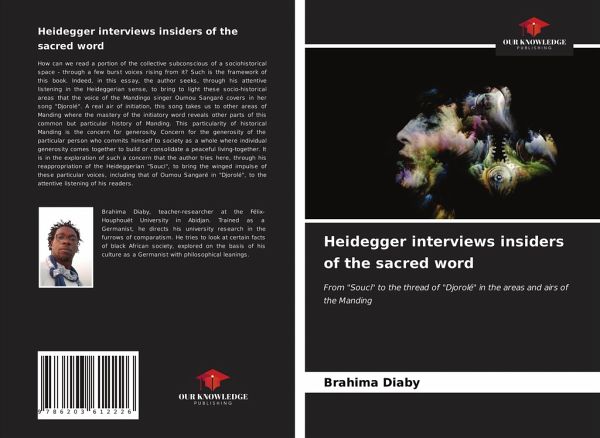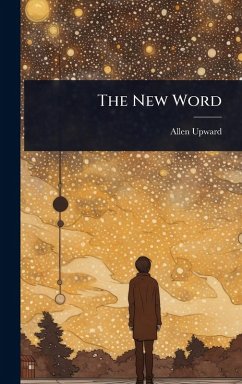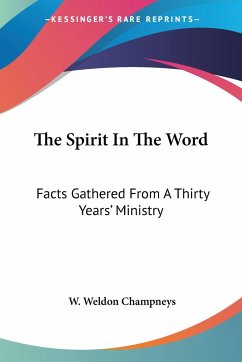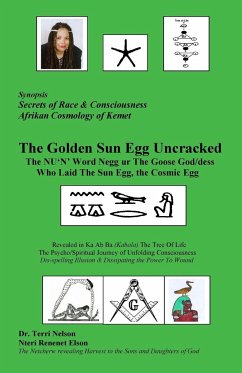
Heidegger interviews insiders of the sacred word
From "Souci" to the thread of "Djorolé" in the areas and airs of the Manding
Versandkostenfrei!
Versandfertig in 1-2 Wochen
47,99 €
inkl. MwSt.

PAYBACK Punkte
24 °P sammeln!
How can we read a portion of the collective subconscious of a sociohistorical space - through a few burst voices rising from it? Such is the framework of this book. Indeed, in this essay, the author seeks, through his attentive listening in the Heideggerian sense, to bring to light these socio-historical areas that the voice of the Mandingo singer Oumou Sangaré covers in her song "Djorolé". A real air of initiation, this song takes us to other areas of Manding where the mastery of the initiatory word reveals other parts of this common but particular history of Manding. This particularity of ...
How can we read a portion of the collective subconscious of a sociohistorical space - through a few burst voices rising from it? Such is the framework of this book. Indeed, in this essay, the author seeks, through his attentive listening in the Heideggerian sense, to bring to light these socio-historical areas that the voice of the Mandingo singer Oumou Sangaré covers in her song "Djorolé". A real air of initiation, this song takes us to other areas of Manding where the mastery of the initiatory word reveals other parts of this common but particular history of Manding. This particularity of historical Manding is the concern for generosity. Concern for the generosity of the particular person who commits himself to society as a whole where individual generosity comes together to build or consolidate a peaceful living-together. It is in the exploration of such a concern that the author tries here, through his reappropriation of the Heideggerian "Souci", to bring the winged impulse of these particular voices, including that of Oumou Sangaré in "Djorolé", to the attentive listening of his readers.












